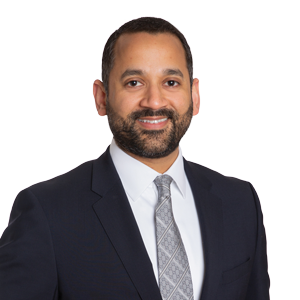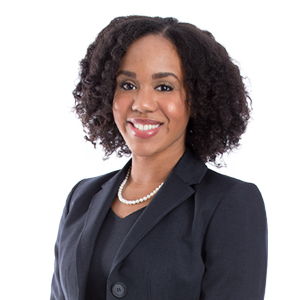Womble Bond Dickinson recently launched HBCU Succeed, a firm-wide initiative designed to provide HBCU (historically black colleges and universities) students with high quality professional development programming, meaningful networking platforms and robust mentorship and sponsorship opportunities.
HBCU Succeed began with a March 23 virtual event with business and law school students from North Carolina Central University. More customized events and other programs are planned at HBCUs throughout Womble Bond Dickinson’s footprint. Nearly 60 NCCU students attended the inaugural event, which featured an impressive lineup of legal industry leaders and entrepreneurs and was divided into three informative sessions:
Session One—Practical Perspectives: How Finance, People and Culture Contribute to Success in Business
Speakers:
- Artin Betpera, moderator (Partner, Womble Bond Dickinson)
- Arnold Evans (EVP, Enterprise Ethics Officer, Truist)
- Richard Lancaster (Controller/Technology Officer, Carmel Country Club)
- Brandie Smith (Sr. Counsel, FedEx Express)
This session focused both on the financial and human aspects of running a business, with an emphasis on the practical skills entrepreneurs need. One of those is determining what lenders look for from businesses seeking capital.
Prior to his current role with Truist, Evans spent 17 years as an investment banker, helping companies move from private to public. He said venture capital firms, private equity investors and banks have different expectations in terms of returns.
“The fundamental question they’re all going to ask you if you are seeking funding is, ‘Why is your idea different and how are you going to make money?’” he said. He noted that banks back people, not ideas, and the burden is on the loan applicant to show that they are trustworthy with the lender’s investment.
Lancaster said borrowers must consider not just how much money they need, but the terms under which they borrow it. They should demonstrate: 1. How will you use money? 2. How do you project paying it back?
“You have to be able to tell a story that convinces that lender that you have the capability to use those funds to accelerate your business and achieve whatever your business objectives are,” he said.
Smith said that in addition to understanding how to raise capital, new business owners need to know how to run a tight ship.
“You want to make sure you are doing what you need to do so that your business runs efficiently,” she said. For example, Smith said start-ups must make sure they have allocated money to pay their employees. She also noted that the COVID-19 pandemic illustrated how important it is to put some money aside for rainy days.
“The pandemic really shined a light on the businesses that had the systems in place that Brandie talked about,” Lancaster said, noting that organized businesses were able to get federal PPP loans.
The panelists also encouraged aspiring entrepreneurs to seek out professional advice in setting up and running a business. Smith found a financial advisor through church – “You’ve got to be proactive and ask for help,” she said. Lancaster noted that the National Association of Black Accountants is a good resource.
Beyond the nuts-and-bolts of starting a business, Betpera encouraged the NCCU students to be flexible as they start their careers.
“Always keep your options open,” he said. “Your career will provide opportunities to pivot.”
Session Two—Outside the Classroom: Soft Skills for Attaining Success
Speakers:
All three panelists hold degrees from HBCUs.
- Victoria Taylor, moderator (Director of Professional Development, Womble Bond Dickinson)
- Shantia Coley (Counsel, Wells Fargo)
- Leigh Allen (Interim CEO, Council on Legal Education Opportunity)
- Charlie Bingham (Attorney, Microsoft)
In addition to practical skills, HBCU Succeed seeks to help students build the types of “soft skills” that aren’t taught in law or business school, but that are instrumental in building a successful career.
Coley said, “Soft skills are your communication skills, your listening skills, your time management skills. Things that can’t necessarily be taught—but you absolutely can hone them.” She also encouraged students to be empathetic and learn to address conflict in the workplace, too.
“A lack of these skills can very much serve to your detriment as you progress throughout your career,” Allen said. Bingham described soft skills as “almost like a sixth sense that can help your career.”
In addition, the panel addressed the notion of authenticity in the workplace. The panelists noted that new employees from minority communities often struggle with “impostor syndrome” – the feeling they don’t really fit in. But Coley said the workplace has changed, and many forward-thinking companies value the perspectives that a diverse workforce can bring.
“You don’t have to hide behind this image of who you think a professional should be,” she said. “You can be authentic.”
Bingham agreed, saying, “You have to be true to yourself. Whenever you go somewhere, you’ve got to remember who you are. You’ve got your strengths and your weaknesses, and you’ve got to own it.”
He also encouraged the students to have confidence in themselves, sharing an old saying that has served him well in business: “Attitude determines your altitude more than your aptitude.”
All the panelists agreed that people just entering the workforce should look for guidance from more experienced co-workers and mentors.
“At some point, if you are doing things right, you are going to get in above your head. The worst thing you can do is not ask for help,” Bingham said.
Finally, the panelist encouraged students to find interests outside of work that refresh their minds. Allen said self-care can be particularly important for students who are working their way through school.
“As an undergrad, all I had to worry about were my studies and just enjoying college life,” he said. But as an adult graduate student, “every minute has to count because you have so many other obligations outside of school. Mastering a work-life balance was one of the things that was most challenging to me.
Session Three—See You Succeed: A Fireside Chat
Speakers:
- Sid Shenoy, moderator (Partner, Womble Bond Dickinson)
- Mohamed (“Mo”) Massaquoi (Founder, VESSOL)
- Trevor Booker (8-Year NBA Vet and Entrepreneur and Partner, JB Fitzgerald Venture Capital)
- Jonah Baize (President & Partner, JB Fitzgerald Venture Capital and former Clemson basketball player and graduate assistant coach)
In this wide-ranging conversation, Womble Bond Dickinson’s Shenoy moderated a discussion with the panelists on how they successfully transitioned to life after sports.
Baize noted that he became an entrepreneur after he lost out on a college coaching job. At the time, he said, it was devastating, but now, he realizes that his career has turned out much better for having turned in a different direction. “I’ve never seen anything pour fuel on our fire like failure,” he said.
“Adversity is going to happen. It’s how you handle it and come back that makes you stronger,” Booker told the students in attendance.
Massaquoi said that building the right support system can both help people overcome those obstacles and succeed once they find their work niche.
“Nobody does it alone,” he said “Everyone has dynamic teammates around them.” He encouraged the students to support others as they, in turn, want to be supported.
Booker encouraged students to do that by “keeping in contact with people on a regular basis. Build a network and keep it strong.”
Massaquoi also said students need to understand their strengths and weaknesses and ask “Where can I add true value to the world?” He said students need to find the job that’s the right fit for them, not just a “good job.”
As a thank-you to the panelists for participating in HBCU Succeed, Womble Bond Dickinson made a contribution to a charity chosen by each panelist. These included the Georgia Justice Project, No Kid Hungry, Goodwill of the Southern Piedmont, Crisis Assistance Ministry, WFAE, Tanner’s Totes, the Morehouse University School of Medicine, and the Police Activities League of Charlotte.




